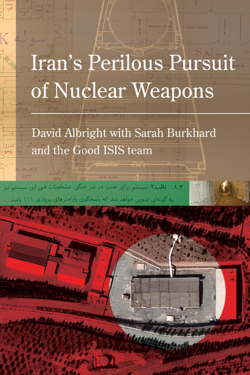Global peace remains a fragile concept, especially in regions where geopolitical tensions simmer beneath the surface. In recent months, the Middle East has once again become a focal point of international attention due to escalating concerns over Iran's nuclear program. As diplomatic negotiations continue, Iran's actions have drawn scrutiny from global powers and regional allies alike. The potential implications of these developments extend far beyond the immediate region, affecting global energy markets, security alliances, and the broader framework of international relations.
The ongoing talks between Iran and world powers aim to revive the Joint Comprehensive Plan of Action (JCPOA), commonly known as the Iran Nuclear Deal. However, recent reports indicate that Iran is simultaneously enhancing its nuclear infrastructure, raising questions about its intentions and commitment to peaceful resolutions. This dual approach—engaging in negotiations while reinforcing nuclear sites—has sparked debates among policymakers and analysts about the future of global peace and stability. Understanding the complexities of this situation is crucial for assessing its potential impact on international diplomacy.
Washington's Strategic Dilemma: Balancing Diplomacy and Defense
The White House finds itself at a critical juncture as it weighs an Iranian proposal for indirect nuclear talks against the backdrop of heightened military activity in the Middle East. While engaging in dialogue to resolve longstanding issues, the administration is also bolstering US military forces in the region as a precautionary measure. This dual-track strategy reflects the complexities of dealing with Iran, where diplomatic progress often coexists with strategic uncertainties. President Trump has warned of potential strikes if negotiations falter, underscoring the delicate balance between dialogue and deterrence.
Amidst these developments, the United States is carefully monitoring Iran's actions to ensure that any agreement reached aligns with its national security interests. By reinforcing its military presence, Washington aims to send a clear message to Tehran that provocations will not be tolerated. At the same time, pursuing indirect talks demonstrates a willingness to explore diplomatic avenues, even if they require creative solutions. This approach underscores the challenges faced by policymakers who must navigate competing priorities in one of the world's most volatile regions.
As discussions unfold, the success of these efforts will depend on both parties' ability to build trust and address core concerns. For the United States, striking a balance between engagement and preparedness remains essential to achieving lasting stability in the Middle East. The outcome of these talks could shape the trajectory of US-Iran relations for years to come, influencing regional dynamics and global security arrangements.
Iran's Diplomatic Outreach: Strengthening Alliances Amid Uncertainty
In addition to fortifying its nuclear facilities, Iran is actively seeking to strengthen alliances with key global players, particularly Russia. Iranian Foreign Minister Mohammad Javad Zarif recently announced plans to deliver a personal message from Supreme Leader Ayatollah Ali Khamenei to Russian President Vladimir Putin. Although the contents of the communication remain undisclosed, the gesture highlights Iran's efforts to diversify its diplomatic engagements during a period of intense negotiations.
This outreach comes amid tense nuclear talks, where progress has been slow and fraught with challenges. By reaching out to Moscow, Iran hopes to secure support from a powerful ally capable of influencing outcomes in its favor. Such moves reflect a strategic calculation by Tehran to hedge its bets while engaging with Western powers. At the same time, they underscore the importance of maintaining strong relationships with non-Western partners who share similar perspectives on global governance and security matters.
Russia's response to Iran's overtures may play a significant role in shaping the trajectory of ongoing discussions. If Moscow chooses to deepen ties with Tehran, it could provide additional leverage for Iran in its dealings with the United States and Europe. Conversely, any reluctance or hesitation on Russia's part might limit Iran's options moving forward, forcing it to reconsider its negotiating stance. Ultimately, the interplay between these relationships will likely influence the final outcome of the current round of talks.
Satellite Imagery Reveals Enhanced Fortifications at Key Nuclear Sites
Recent satellite imagery analyzed by independent think tanks has revealed significant upgrades to Iran's underground nuclear facilities, particularly near the Natanz site. These enhancements include the reinforcement of two heavily fortified tunnel systems designed to withstand potential attacks. Analysts believe these measures are part of a broader effort by Iran to safeguard its nuclear infrastructure amidst rising tensions with adversaries like Israel and the United States.
While official statements from Iranian authorities emphasize their commitment to peaceful uses of nuclear technology, the scale and scope of these fortifications raise concerns among international observers. Some experts argue that such preparations indicate a growing likelihood of conflict, as Iran appears to be bracing for worst-case scenarios involving military confrontation. Others contend that these steps represent prudent precautions rather than aggressive posturing, highlighting the need for greater transparency and confidence-building measures.
Regardless of intent, the fortification of nuclear sites complicates efforts to reach a comprehensive agreement, as it introduces new variables into already complex negotiations. For instance, verifying compliance with any deal becomes more challenging when facilities are buried deep underground and protected by advanced defensive systems. Addressing these issues requires innovative approaches and sustained dialogue, ensuring that all parties involved feel confident in the durability and enforceability of any eventual settlement.

